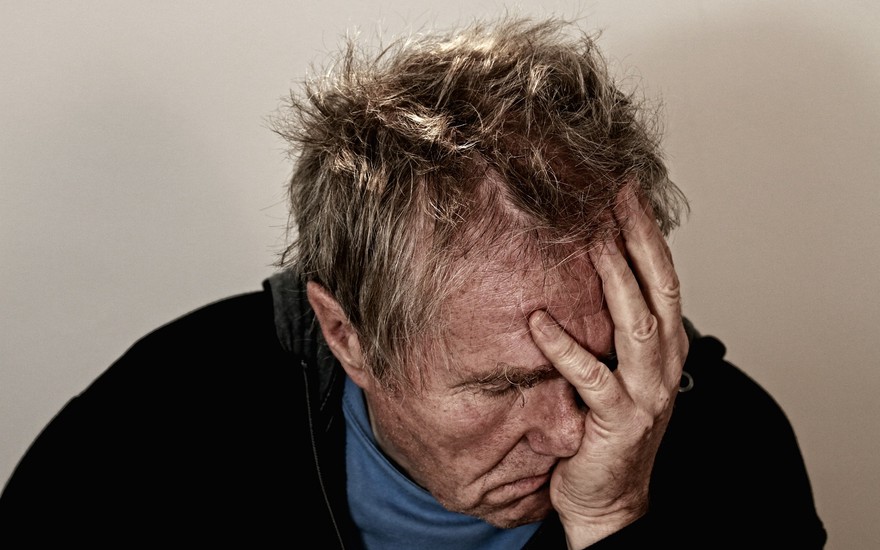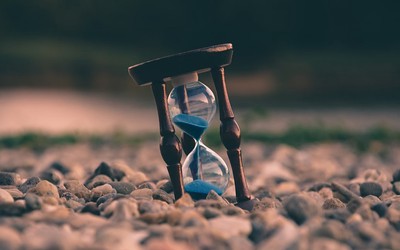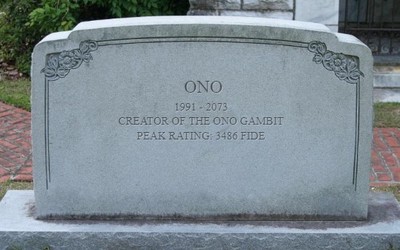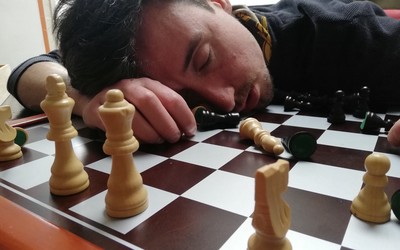
Has Chess Ruined My Life?
Here begins the tale of the most dramatic chess player in the world. Me.I have this theory about chess and parenting. Here’s my take: becoming a parent has reduced the quality of my life, but has vastly increased the meaning in my life. And honestly, as stupid as it might sound to compare the wonders of parenting to chess, I feel pretty similarly about the two. Chess has made my day-to-day life harder, but it has also made my life much more meaningful. That trade-off is one I would never change. I know that because I haven’t quit chess, nor have I given my child away. So apparently meaning trumps happiness or quality of life - at least for me. As a side note, I’ll say that when I talk about reduced quality of life in regards to parenting, I simply mean having less free time and independence. It's the little things like going to the toilet alone that I might have previously taken for granted.
With that disclaimer out of the way, let's get back to chess. I would like to retain the meaning chess brings to me without the suffering that I often experience as part of my own daily chess practice. And as weird as it sounds, I am actually sort of happy to have this problem. It's actually one of the things that attracts me so much to the game.
Chess has been a mirror for me. It has forced me to confront some issues and patterns in my mindset and attitude that I have only come to identify because of how these behaviours are amplified through my chess journey. And just as I want to grow and become a better chess player, I also want to grow and become a better person (and parent for that matter). And without chess I might not have noticed the things that were wrong with me, or at least even if I did, I might not have had the motivation to change them. This is especially true for me now that I am a parent and am realising that my kid doesn’t do what I ask him to do, but does what I do. And I don’t want him to grow up with an inner dialogue that resembles my own after I’ve chucked a +7 position in an endgame.
So why has chess made my life worse? It’s a combination of the ‘every other day’ pain of losing singular games, and the self-doubt and feelings of being completely inept and unable to learn in the face of long periods of rating stagnation. And that last one is particularly concerning for me. Because I have only been playing chess for 18 months! I’m pretty sure a lot of people reading this will laugh at the idea that someone who has played for just 18 months could have experienced the despair of a flatlined rating. But this is my experience. It comes and goes in waves. Sometimes I will shrug off a defeat and see it as a great learning opportunity with a clear takeaway, other days the losses hit harder and I’ll spend the rest of my day sobbing on the bathroom floor listening to Cyndi Lauper’s True Colours on repeat.
Those are the days when I weigh the opportunity cost of chess as a hobby. Before chess I ran a game of Dungeons and Dragons. I spent about the same amount of time on that in a week as I do on chess, and I was writing essays for a D&D blog alongside that too. When I think back to the contents of those hours, there is no doubt that D&D was much more relaxing, brought me much more happiness and was equally as social, if not more social. So why haven’t I gone back to a creative and light hobby like D&D? A game where I spent my week designing story arcs, creating characters and mapping out whole worlds to share with my friends over a few beers on Friday night? Seriously, why? Why did I pick eternal suffering over that? I guess I have an answer. Right? And that answer has to be the meaning part. I’m talking about the gratification and fulfilment that comes from persistent daily effort and practice. And I do feel that. I haven’t improved that fast compared to some people. But I do feel like given the hour I get each day, I’ve not done that badly. And there are times when I look back at how far I have come and I feel a deep sense of accomplishment and pride, not necessarily at what I have achieved (although that too), but simply in my consistency and persistence in this never-ending pursuit called chess.
Now, back to the pain. I want to share the original bit of writing I did that sparked the idea for this article:
It’s Friday the 24th of June. It’s 23:26. And it still hurts. I actually got out of bed to write this. I’ve got this stupid calculation error stuck on a loop in my head from a rapid game that I played over six hours ago. And the pain just won’t go away. This loss marks my third rapid loss in a row and they all came right after I finally crossed 1680 on Lichess. A bizarre number that I have been aiming at since January. Because when I switched from Chess.com to Lichess then, I decided that my 1300 rapid rating was equal to 1680 here.
So I have felt pretty ridiculous for the last six months. Like I was worse than I was last year. That I hadn’t improved. And when I finally rid myself of that by crossing 1680, I find myself back in the mid 1600’s. Frankly, I’m devastated.
Now, as stated I am a massive drama queen, so excuse the tone of the original bit of writing. But the ‘devastation’ as I put it, is not an unfamiliar feeling for me, and I go through phases where the losses hit me harder.
I have developed several coping mechanisms that do, over periods of time, mask the pain of the one-move blunder or defeat. But I feel a bit like it's giving someone with a cold a tissue. It's treating a symptom, not the cause. For example I can sit down before a game and affirm to myself that the aim of the game is to learn something new. Whether I win or lose is unimportant. In the long run, this next game is going to only have value if I learn something from it, not if I win or lose. That's a healthy thing to say. And if I do lose, going into the game with that mindset can help, but eventually that all slips away. I either forget to do the affirmation, or the emotional charge of the game supersedes everything. And to be clear, I always go back and still learn, I’d just like to be able to learn without the hurt. Part of me doesn’t know if that's possible. That maybe somehow the pain is the mechanism that is reinforcing the lesson and driving my improvement. I just don’t know.
There is something in the rating. I’ve taken 3 chess breaks. All after chess brought out negative emotions that were just too much. And all of those came at specific rating goals or points. The first one came when my rating stopped going up every week. My climb from 800 to 1100 was slow but steady. It took me 6 months. Then 5 months after that I was still at 1100. And then boom, a further month and I was at 1300. I think in the beginning improvement is this easy gradual climb, because there is so much low-hanging fruit. Then there is a sticking point and the rating graph starts to look like a set of stairs. You flatline for ages (in my case: months) until the training you have been doing kicks in, or there is some breakthrough in understanding or skill.
This always happened to me in competitive sport and the trend seems to be the same for me with chess. When I hit my first sticking point I really struggled, I felt like there was something wrong with me and with no previous experience of rating stagnation I had no idea when or if it would ever end. During that time, the idea that I could be studying and practising and not getting better was sort of new for me. I’ve always found that by putting in the effort, I got the results I wanted - and pretty quickly too. I think that during that first plateau I realised that chess was an entirely different animal to anything else I had grappled with in my life. I think that is when I saw there was a sense of something greater here. A sense of meaning. That chess was a monster. And it was a monster I wanted to face. This was going to be a real fight. And I was into it. And I still am. That's the meaning that supersedes the suffering. That’s the reason I’m still playing. I don't know if I can say I enjoy the struggle, but my god it makes me feel good.
That first wave of hurt came because I felt intellectually inferior. I'm not sure who I was comparing myself to or who exactly I felt inferior to, but knowing me, it was probably just everyone in the world. I was studying and training and nothing was happening. I questioned whether that just meant I was stupid. Perhaps I was the worst chess player to walk the planet earth. Maybe I had hit 30 and turned into the intellectual equivalent of a macaroni pie.
But none of that was true. What was true is that my rating wasn’t going up. I was getting better at chess. And I think that is a very important distinction that I still find extremely hard to accept - the idea that improvement and rating gain are separate and independent. But I have written about this before. New understanding does not equal new skill. It’s like if a tennis player gets a new super-racket, they aren’t just immediately better at tennis. You need to learn how to use your new tool first, and the process of getting acquainted with your new racket actually probably means you are going to play a lot worse for a while, but in the long run, the new racket will make a difference. So the constant adjustment of our play to incorporate newly learned ideas can make the measurement of improvement really hard to gauge as an amateur, particularly if you are doing it alone.
Perhaps constantly being reminded that I am better at chess regardless of where my rating is, will help me to eventually believe it. I implore everyone to get themselves a chess friend or community to help with this. Consider the message I got from my chess buddy Andrew after my aforementioned calculation nightmare loop.
“Another tough one, but hey man, that’s why we play! In an alternate universe, alternate Ono never plays this game and keeps a couple of rating points for a couple of days but never gets this hard-knock lesson emblazoned into his brain. That Ono has a slightly higher rating but is a weaker player.”
And I know he is right. And I might one day come to fully accept it. Perhaps one day I’ll set aside rating goals for good, even the secret ones I don’t tell anyone about. Maybe this way I’ll lose and feel no pain, only the excited buzz of a learning opportunity. For now, I often find it hard to accept that idea in the immediate and emotionally charged aftermath of defeat. At that moment, I don’t want to accept that I am a better player as a result of the lesson I’ve just been taught. I want to sulk. I want to sit in a puddle of my own misery and moan about how shite I am at chess whilst endlessly beating myself up for not counting my opponent's seemingly invisible a4 pawn as an attacker of the b5 square.
A recent episode of the Perpetual Chess Podcast featuring Adult Improver Dr Nick Vasquez was really interesting to me. It was pointed out later by Ben Johnson in a follow-up Twitter thread that one of the reasons he thought the episode resonated so much with his listeners was the fact that Nick took his chess seriously, but he didn’t take himself too seriously. That was certainly one of the reasons I loved the episode so much. Nick’s ability to remove his ego from his chess practice was inspiring to hear about. It gave me hope for a less painful future. I take my chess seriously, but I take myself far too seriously as well (my partner, who's also my editor, and sneaked this in, seriously agrees with this). Every blunder feels like a gross personal failing. Every period of rating stagnation feels like a reflection on my inability to improve and learn generally. I become tragically theatrical in the face of chess adversity, a fact that is both embarrassing and annoying, because I don’t want to experience so much hurt. I do feel like just knowing the problem is the first step to fixing it, so I hope I am on the right path. How I’ll go about that, remains to be seen. I am genuinely considering forgoing my next Chessable purchase in favour of hiring a sports psychologist to help me grow in this respect.
Ultimately, I have chosen chess. I have chosen pain. I know there is no way to fully eliminate it. It’s part of the world. One I feel eternally bound to now. I could’ve picked something else like knitting or bonsai. But no. I chose chess. And I will keep choosing it. But I’ll also keep trying to make it a lighter experience too, and I welcome the opportunity for it to keep making me a better person. So thank you, chess. Thanks for holding up the mirror. Thanks for amplifying and forcing me to see my flaws. Thanks for pushing me to improve myself. And also fuck you. Without you I would be a slightly worse, but much happier version of myself. And I am still confused about which of those I would prefer to be.
Partly inspired by my journey in overcoming much of the things I discussed in this article, I have started coaching chess. Learn more about my Adult Improver coaching services.
Click here to book a free 60-minute lesson with me.
I would love to hear from anyone who has experienced similar things with chess, and especially from people who have managed to transition from removing their ego and extracting some of the hurt from their daily chess exploits!
You can now also stay up to date by signing up for my newsletter, including my soon-to-be-released 'Ono Another Chess Podcast'. Feel free to reach out to me here on Lichess or message me on Twitter. You can also send me an email about anything chess-related at info@theonozone.com.
Oh and if you want to help pay for my sports psychologist, consider becoming a Patron of my blog.
See my coaching services if you're interested in a free 60-minute trial lesson.
I'm also pleased to say I’ve partnered with ChessMood and can now offer you all a 20% discount on their courses if you use this link to buy one of their memberships.
Thanks for reading!
More blog posts by TheOnoZone

Adult Chess Clock
I used to say that nobody doesn’t have the time for something, they just don’t want to prioritise it.
The Ono Gambit
I am getting older.
Losing Consciousness
It was game over.